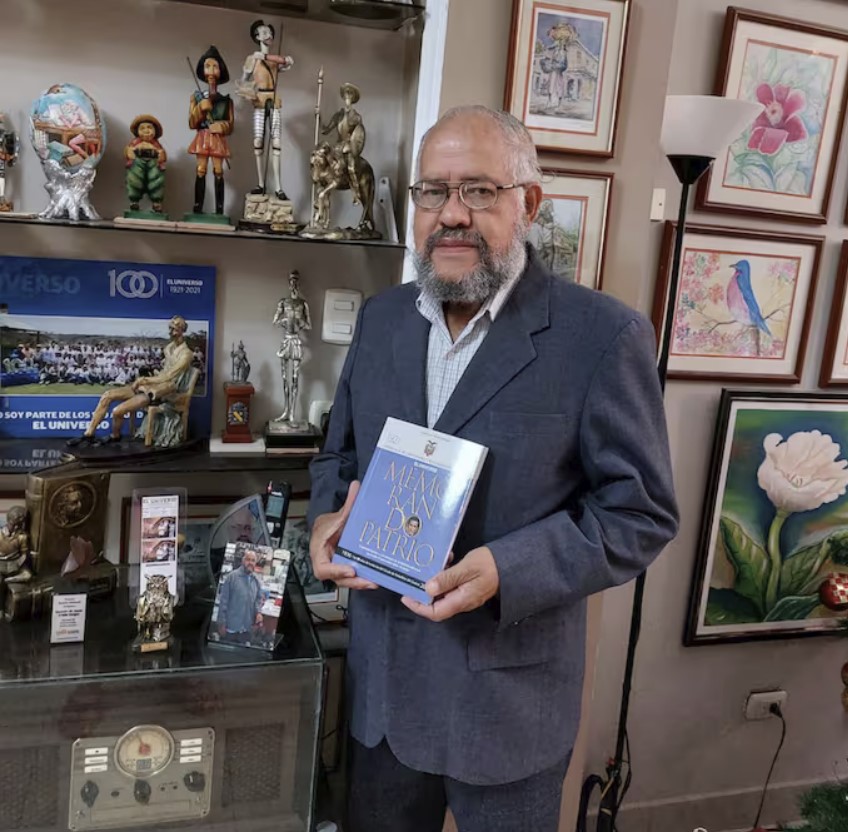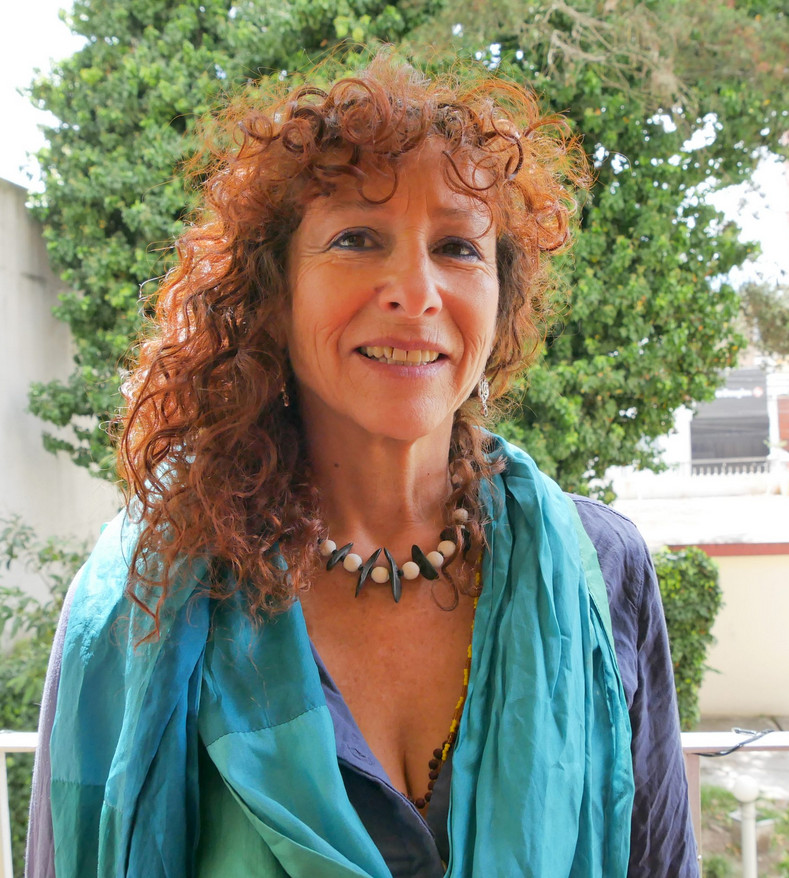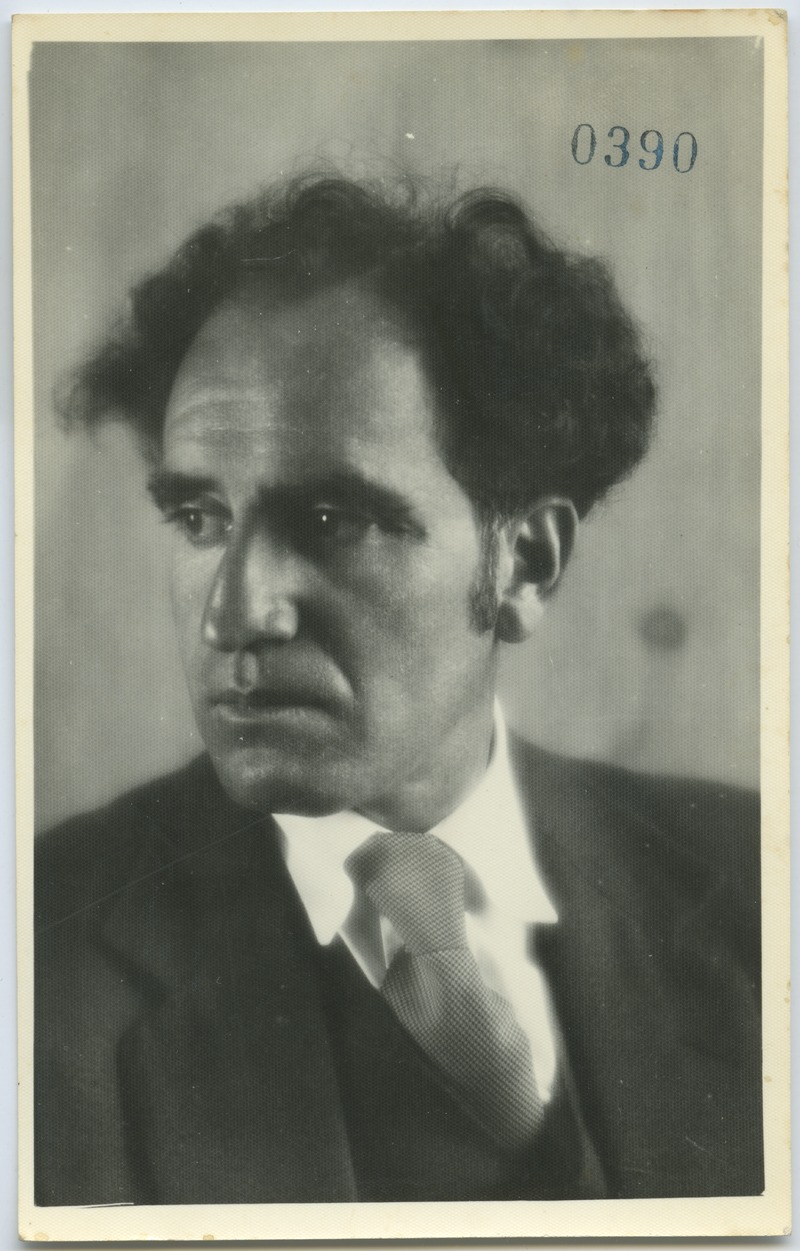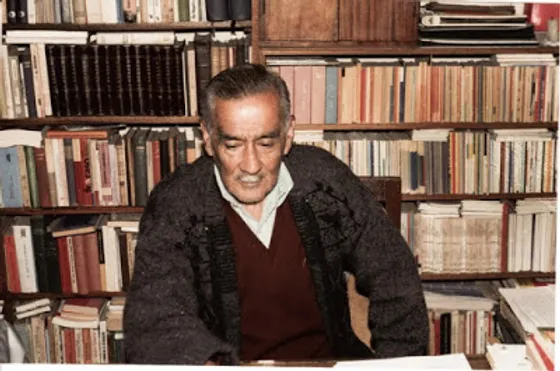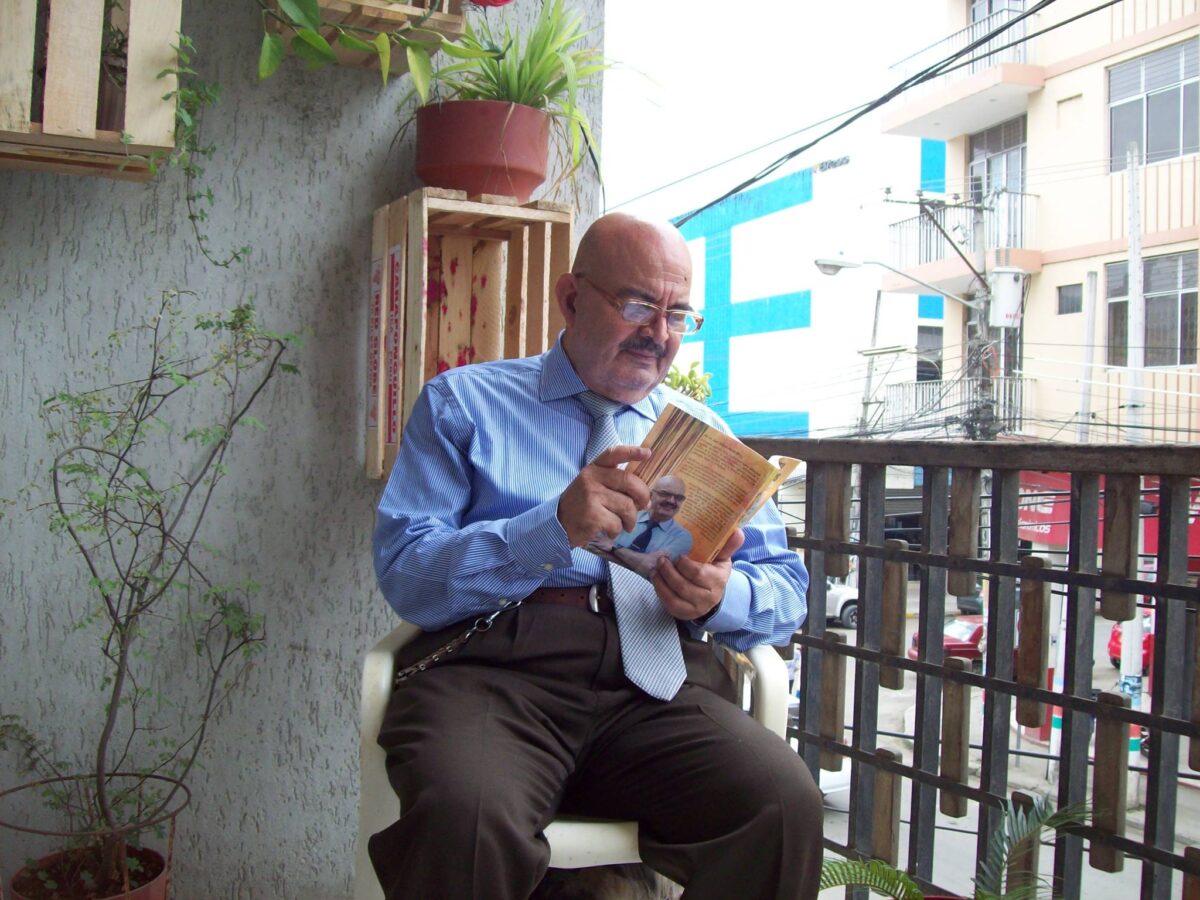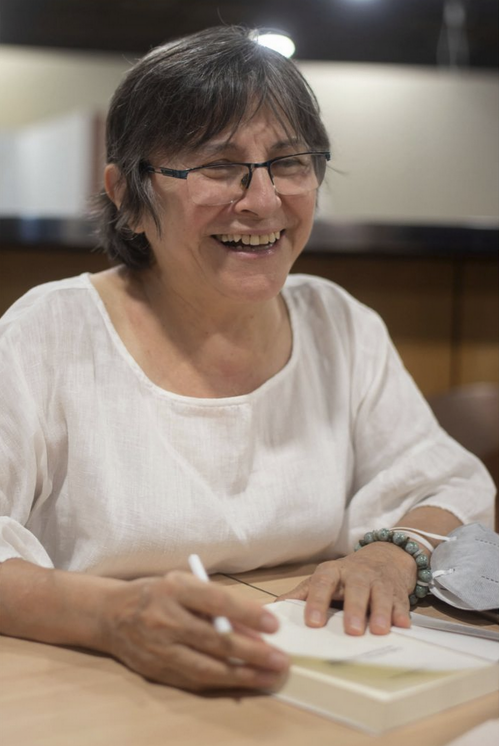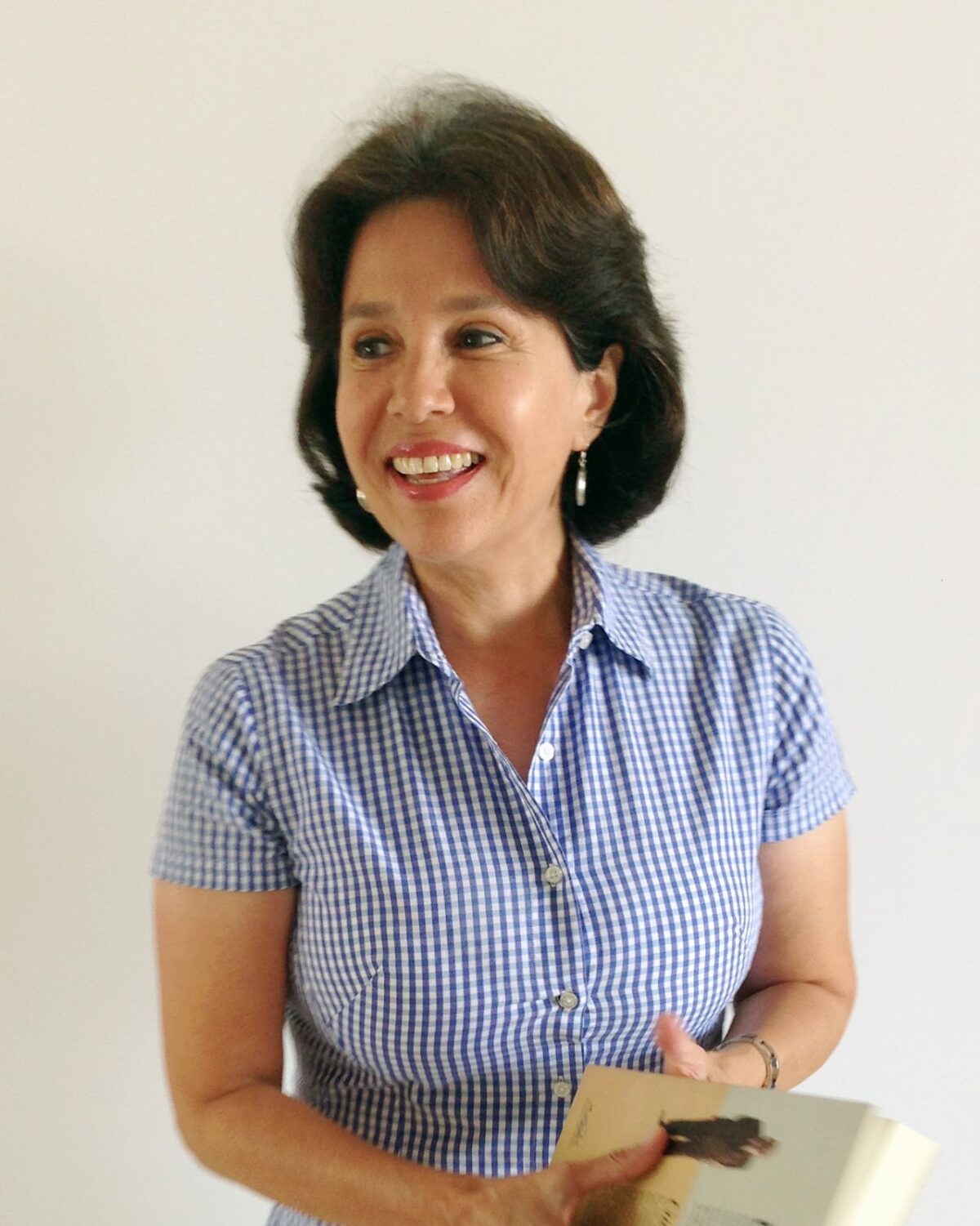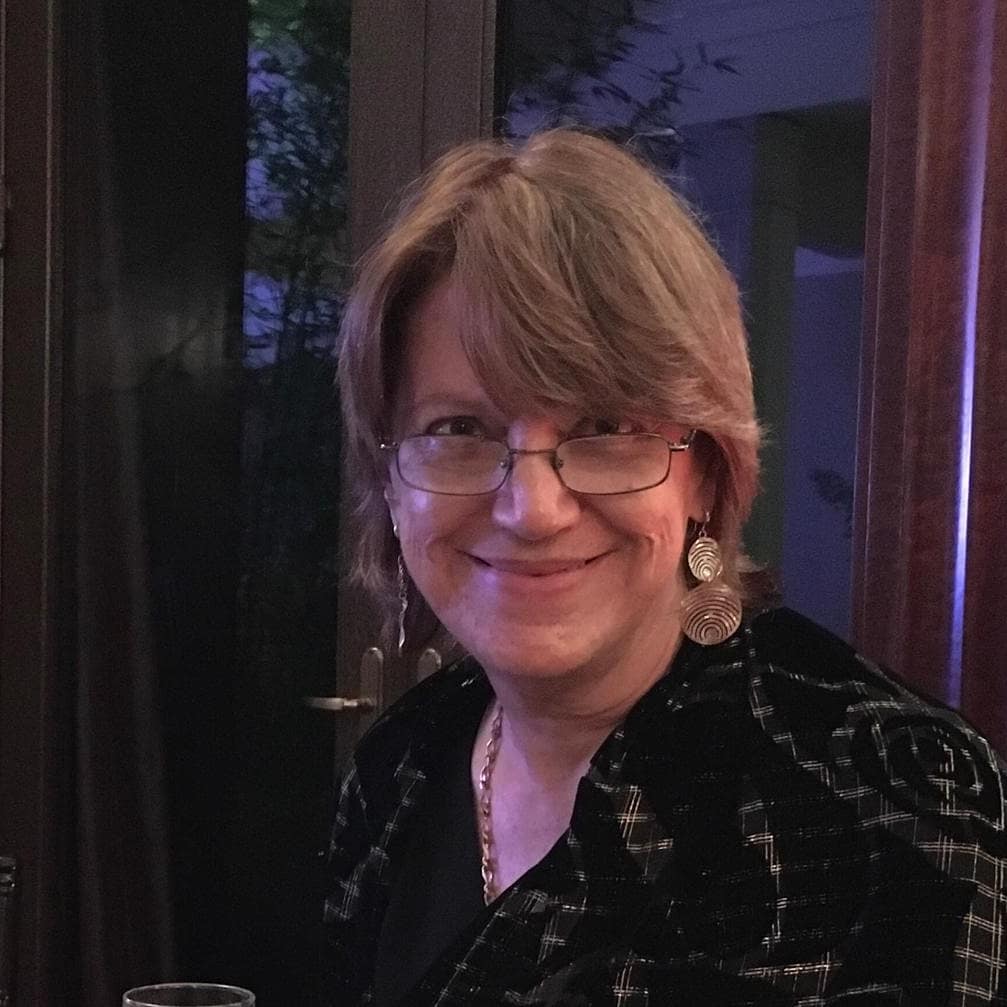Germán Arteta Vargas (Guayaquil, Ecuador, 1940) is a prominent Ecuadorian historian, journalist, educator, and author. Known for his dedication to preserving Ecuadorian history and culture, he has published several influential works, including Guayaquil nostálgico (2009), Cantos a Guayaquil (2011), and Qué chévere (2012). His writing often focuses on civic education, folklore, and national identity. In 2019, he was inducted as a Corresponding Member of the National Academy of History in recognition of his contributions to the historical and cultural heritage of Ecuador.
Continue reading “Germán Arteta Vargas”Category: 20th Century Writers
Elías Candel Espinoza
Elías Candel Espinoza (Guayaquil, 1896 – 1983) was an Ecuadorian journalist, poet, and coplero, known by his pen name Adel Celinas. By the 1930s, his coplas were appearing in El Universo newspaper, alongside the caricatures of Virgilio Jaime Salinas and the column Los Jueves Alegres by José Antonio Campos Maingon. Over the decades, he continued writing for the paper, producing poems and verses, including a notable tribute to tennis legend Pancho Segura in the 1950s. His poem La gran fecha was later included in the anthology Cantos a Guayaquil (2011).
Continue reading “Elías Candel Espinoza”María Eugenia Paz y Miño
María Eugenia Paz y Miño (Quito, Ecuador, 1959) is an Ecuadorian writer and anthropologist known for her contributions to literature and cultural studies. She has published notable works across various genres, including the acclaimed novel La puerta del Ilaló (2008) and the political thriller Que no quede huella (2020). Paz y Miño’s writing often intertwines her anthropological background with her literary pursuits, exploring themes of culture, politics, and human relationships. She has received several prestigious awards, such as the Rumiñahui de Oro and the Fondo Editorial del Ministerio de Cultura del Ecuador.
Continue reading “María Eugenia Paz y Miño”Rigoberto Cordero y León
Rigoberto Cordero y León (Cuenca, June 11, 1916 – Cuenca, August 1998) was an Ecuadorian poet, writer, and scholar whose work significantly contributed to the development of Ecuadorian literature. Known for his extensive body of poetry, biographies, and essays, his writings explored themes of music, culture, and national identity, and were translated into multiple languages. Cordero y León received numerous awards, including the Fray Vicente Solano Decoration, and curated anthologies that highlighted the richness of Cuenca’s literary tradition.
Continue reading “Rigoberto Cordero y León”Oswaldo Albornoz Peralta
Oswaldo Albornoz Peralta (Cuenca, May 8, 1920 – Quito, November 27, 2000) was an Ecuadorian historian, educator, and Marxist intellectual. Known for his critical works on Ecuadorian social history, Albornoz applied a Marxist lens to topics such as indigenous uprisings, labor movements, and the role of the church in Ecuador’s political development. He authored numerous influential books, including Historia de la Acción Clerical en el Ecuador (1963) and Bolívar: Visión Crítica (1990), and was a key figure in the Ecuadorian Communist Party. His contributions earned him national recognition, including an honorary doctorate from the Universidad Central del Ecuador.
Continue reading “Oswaldo Albornoz Peralta”Teresa Ala-Vedra y Tama
Teresa Ala-Vedra y Tama (Guayaquil, April 2, 1889 – Guayaquil, 1987) was an Ecuadorian journalist, poet, writer, painter, pianist, and composer. She co-founded the literary magazine La Ondina del Guayas (1907-1910), which provided a platform for women writers to express themselves through poetry, essays, and articles. Known for her artistic versatility, Teresa also excelled in watercolor painting and music composition, contributing significantly to Ecuador’s early feminist literary movement. Her work spanned various creative forms, including drama, with her children’s play En el jardín de los enanos published in 1956.
Continue reading “Teresa Ala-Vedra y Tama”Wadía Lauando Vélez
Wadía Antón Lauando Vélez (Portoviejo, 1940) is an Ecuadorian poet and novelist renowned for his works that explore rural life, nature, and mythology, with a focus on the cultural heritage of Ecuador’s coastal Montubio region. His notable publications, such as Corazón de colibrí (2006) and Laberinto de los sueños (2011), showcase his lyrical style and deep connection to the Manabí region. In 1994, he founded the Provincial Poetry Contest “El Poeta y Su Voz” while serving as President of the Casa de la Cultura in Manabí and later served as Director of its Literature Section, actively promoting Ecuadorian literature.
Continue reading “Wadía Lauando Vélez”Viviana Cordero
Viviana Cordero (Quito, August 3, 1964) is an Ecuadorian writer, playwright, and film director. She studied Modern Literature at the Sorbonne in Paris and began her career in 1990 by co-producing Sensaciones, the first Ecuadorian feature film made in 35mm. Cordero is known for her novels, including El Paraíso de Ariana (1994), El Teatro de los Monstruos (2000), and Mundos Opuestos (2010), as well as for her significant contributions to Ecuadorian theater and cinema. Her works explore themes of identity, memory, and societal roles, particularly focusing on women’s experiences.
Continue reading “Viviana Cordero”Carolina Andrade
Carolina Andrade (Guayaquil, 1963) is an Ecuadorian writer, university professor, and journalist known for her poignant short stories and novellas. She studied in Mexico at the literary workshops of the Sociedad General de Escritores Mexicanos (SOGEM) and later earned postgraduate degrees in Education, Humanistic Studies, and Communication. Her notable works include Detrás de sí (1994), De luto (1999), and the novel A orillas de un relato (2024), which explore themes of death, existential absurdity, and human fragility. Andrade’s works have been translated into multiple languages and featured in prestigious literary anthologies.
Continue reading “Carolina Andrade”Denise Rosales
Denise Rosales (Guayaquil, 1954) is an Ecuadorian novelist and short story writer known for her only novel, Los vértices del triángulo (1994), which explores themes of love and desire through a bold narrative of a love triangle. Her work has been featured in anthologies such as Libro de posta (1983), Frauen in Lateinamerika 2 (1987), and Antología de narradoras ecuatorianas (1997). Rosales has lived in Milan, Italy, and is recognized as part of the movement of prominent Ecuadorian women writers who gained recognition in the 1980s and 1990s.
Continue reading “Denise Rosales”Martha Rodríguez Albán
Martha Rodríguez Albán (Loja, 1959) is an Ecuadorian fiction writer, literary scholar, and educator. She holds a Doctorate in Medicine and Surgery from the Universidad Católica de Santiago de Guayaquil and a Master’s in Cultural Studies from the Universidad Andina Simón Bolívar. As a fiction writer, she is known for her short story collections Nada más el futuro (1996), which won the Joaquín Gallegos Lara National Award, and Pero es después, bajo el sol (2001). In the field of literary criticism, she authored Narradores ecuatorianos de los 50: poéticas para la lectura de modernidades periféricas (2009) and Crítica literaria y sociedad en el Ecuador (1930-2000) (2022). She currently teaches at the Universidad Central del Ecuador in Quito.
Continue reading “Martha Rodríguez Albán”Marcela Veintimilla
Marcela Veintimilla Carrión (Zaruma, 1961) is an Ecuadorian short story writer who gained recognition during the 1980s. She was part of the Advanced Literature Workshop at the Central Bank/Casa de la Cultura Ecuatoriana, Núcleo del Guayas, under the guidance of Miguel Donoso Pareja. Her debut collection, Cualquier cosa me invento para ver (1989), presents introspective and experimental narratives that explore identity, personal dilemmas, and societal expectations. Her work has been included in notable anthologies.
Continue reading “Marcela Veintimilla”Livina Santos
Livina Santos (Guayaquil, 1959) is an Ecuadorian writer and educator known for her contributions to feminist literature in Ecuador. She gained recognition with her short story collection Una noche frente al espejo (1989), which explores themes such as gender roles, societal repression, and existential issues through a feminist lens. A former member of the Advanced Literature Workshop at the Central Bank of Ecuador, she has also contributed to various literary anthologies. Alongside her literary career, Santos has taught literature and led numerous literary workshops, shaping the literary landscape of Ecuador.
Continue reading “Livina Santos”Liliana Miraglia
Liliana Miraglia (Guayaquil, 1952) is an Ecuadorian writer, storyteller, and photographer known for her short stories that blend irony, humor, and subtle reflections on women’s roles in society. She was a key member of the Creative Writing Workshop of the Central Bank of Guayaquil, led by Miguel Donoso Pareja, and her works often explore the complexities of everyday life with a minimalist and ambiguous narrative style. Her notable works include “La vida que parece” (1989; The Life That Appears) and “Un close up prolongado” (1996; A Prolonged Close-up). Many of her other stories have been featured in anthologies, underscoring her significance in Ecuadorian literature of the late 20th century.
Continue reading “Liliana Miraglia”Fabiola Solís de King
Fabiola Solís de King (Quito, Ecuador, October 8, 1936) is an Ecuadorian writer, clinical psychologist, and agronomist. Known for her penetrating exploration of human psychology, her work often delves into themes of mental health, gender, and the boundaries between reality and madness. She has published short story collections such as Al otro lado del muro (1978) and Mundo aparte y otros mundos (1983), as well as co-authored the pioneering research book La sexualidad femenina en el Ecuador (1987). Her work, characterized by experimental techniques, situates her among the leading Ecuadorian women writers of the 1970s. Her stories have been featured in several anthologies, both nationally and internationally, solidifying her as a significant voice in Ecuadorian literature.
Continue reading “Fabiola Solís de King”